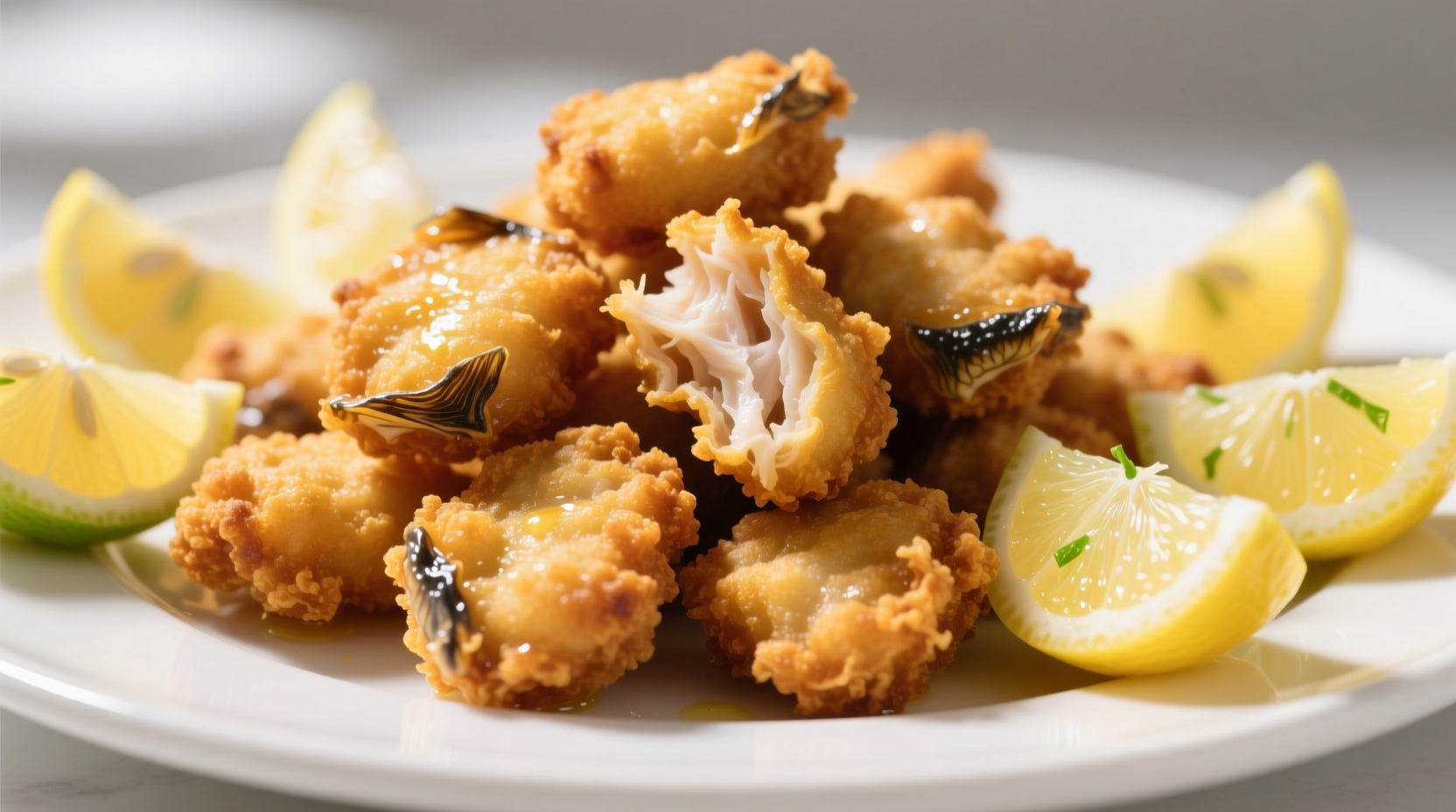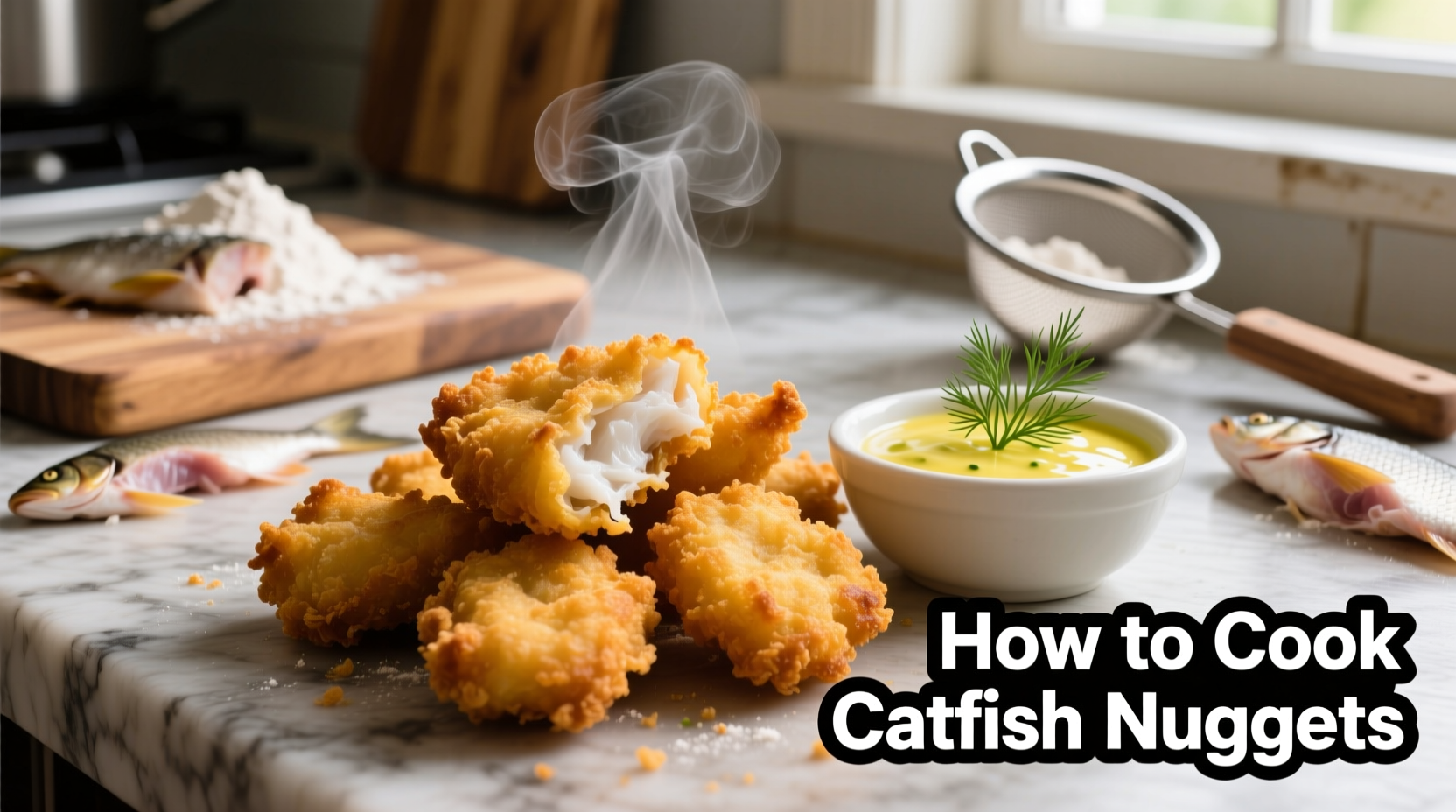The best way to cook catfish nuggets is by deep frying at 350°F for 3-4 minutes until golden brown and reaching an internal temperature of 145°F. For a healthier alternative, bake at 400°F for 12-15 minutes, flipping halfway through. Properly cooked catfish nuggets should have a crispy exterior and flaky, opaque white interior with no translucent areas.
Perfect Catfish Nuggets: Your Step-by-Step Cooking Guide
Nothing beats the satisfying crunch of perfectly cooked catfish nuggets. Whether you're preparing a quick weeknight dinner or hosting a casual gathering, this versatile Southern classic delivers restaurant-quality results at home. In this guide, you'll learn professional techniques for achieving consistently crispy, flavorful catfish nuggets every time—plus valuable insights most recipes omit.
Before You Start: Essential Preparation
Successful catfish nugget preparation begins long before heating oil. Start with fresh, high-quality catfish fillets—look for firm, moist flesh with a clean ocean scent. Frozen catfish works well too, but requires proper thawing: place sealed fillets in the refrigerator for 24 hours or submerge in cold water for 30-60 minutes.
Drying your fish thoroughly is the most overlooked step that makes or breaks crispiness. After rinsing, pat each piece completely dry with paper towels. Any surface moisture creates steam during cooking, preventing that essential golden crust. Season immediately after drying to help the coating adhere properly.
Ingredients You'll Need
- 1.5 lbs fresh or thawed catfish fillets, cut into 1.5-inch nuggets
- 1 cup buttermilk (or milk with 1 tbsp vinegar)
- 2 cups all-purpose flour
- 1/2 cup cornstarch (for extra crispiness)
- 2 tsp paprika
- 1.5 tsp garlic powder
- 1 tsp cayenne pepper (adjust to taste)
- 1.5 tsp salt
- 1 tsp black pepper
- Peanut or vegetable oil for frying (high smoke point)

Step-by-Step Cooking Process
Dredging Technique for Maximum Crispiness
Create a three-stage station: buttermilk mixture in one bowl, seasoned flour/cornstarch in another, and a third empty bowl. Dip each nugget first in buttermilk, then flour mixture, then back to buttermilk, and finally into flour again. This double-dip method creates the signature crunchy texture Southern restaurants are known for.
After coating, let nuggets rest 5-10 minutes before cooking. This critical step allows the coating to hydrate and adhere properly, preventing it from sloughing off in the oil. Don't skip this—it's what separates amateur results from professional-quality nuggets.
Frying to Perfection
Heat oil to 350°F in a heavy-bottomed pot or deep fryer, maintaining temperature between 325-350°F throughout cooking. Test oil readiness with a small breadcrumb—it should sizzle immediately and turn golden in 60 seconds.
Carefully add 6-8 nuggets at a time (overcrowding drops oil temperature). Fry 3-4 minutes until golden brown, turning once. Use a thermometer to verify internal temperature reaches 145°F—the FDA's recommended safe temperature for fish. Drain on wire rack (not paper towels) to maintain crispiness.
| Cooking Method | Temperature | Time | Texture Result | Best For |
|---|---|---|---|---|
| Deep Frying | 350°F | 3-4 minutes | Extra crispy exterior | Authentic Southern style |
| Air Frying | 400°F | 8-10 minutes | Moderately crispy | Health-conscious cooking |
| Baking | 400°F | 12-15 minutes | Lightly crispy | Large batches, meal prep |
Avoid These Common Catfish Nugget Mistakes
Many home cooks encounter problems with soggy or unevenly cooked nuggets. Understanding these context boundaries prevents disappointment:
- Oil temperature fluctuations: Dropping too many nuggets at once lowers oil temperature, causing oil absorption and greasy results. Maintain consistent temperature using a thermometer.
- Under-seasoned coating: Catfish has mild flavor that needs proper seasoning. Don't be shy with spices—season both the fish and coating mixture.
- Skipping the resting period: Coated nuggets need 5-10 minutes to set before cooking. Rushing this step causes coating to detach during frying.
- Overcrowding the cooking surface: Whether frying or baking, give nuggets space. Crowded nuggets steam instead of crisp.
Serving and Storage Recommendations
Serve catfish nuggets immediately for best texture. Classic accompaniments include lemon wedges, remoulade sauce, coleslaw, and hushpuppies. For meal prep, store cooled nuggets in an airtight container with parchment paper between layers.
Refrigerate for up to 3 days or freeze for 2 months. Reheat in air fryer at 375°F for 5-7 minutes to restore crispiness—avoid microwaving which creates rubbery texture. Never refry previously cooked nuggets as they'll become overly dry.
Expert Tips for Consistent Results
Professional kitchens achieve consistent results through temperature control and timing precision. Use a reliable instant-read thermometer for both oil and internal fish temperature. For extra crunch, add 1/4 cup crushed cornflakes to your flour mixture. If preparing for a crowd, keep cooked nuggets warm in a 200°F oven on a wire rack—never covered, which traps steam and softens the crust.
For those concerned about sustainability, the National Oceanic and Atmospheric Administration's FishWatch program recommends choosing US-farmed catfish, which follows strict environmental standards and produces consistently high-quality fish ideal for nuggets.











 浙公网安备
33010002000092号
浙公网安备
33010002000092号 浙B2-20120091-4
浙B2-20120091-4